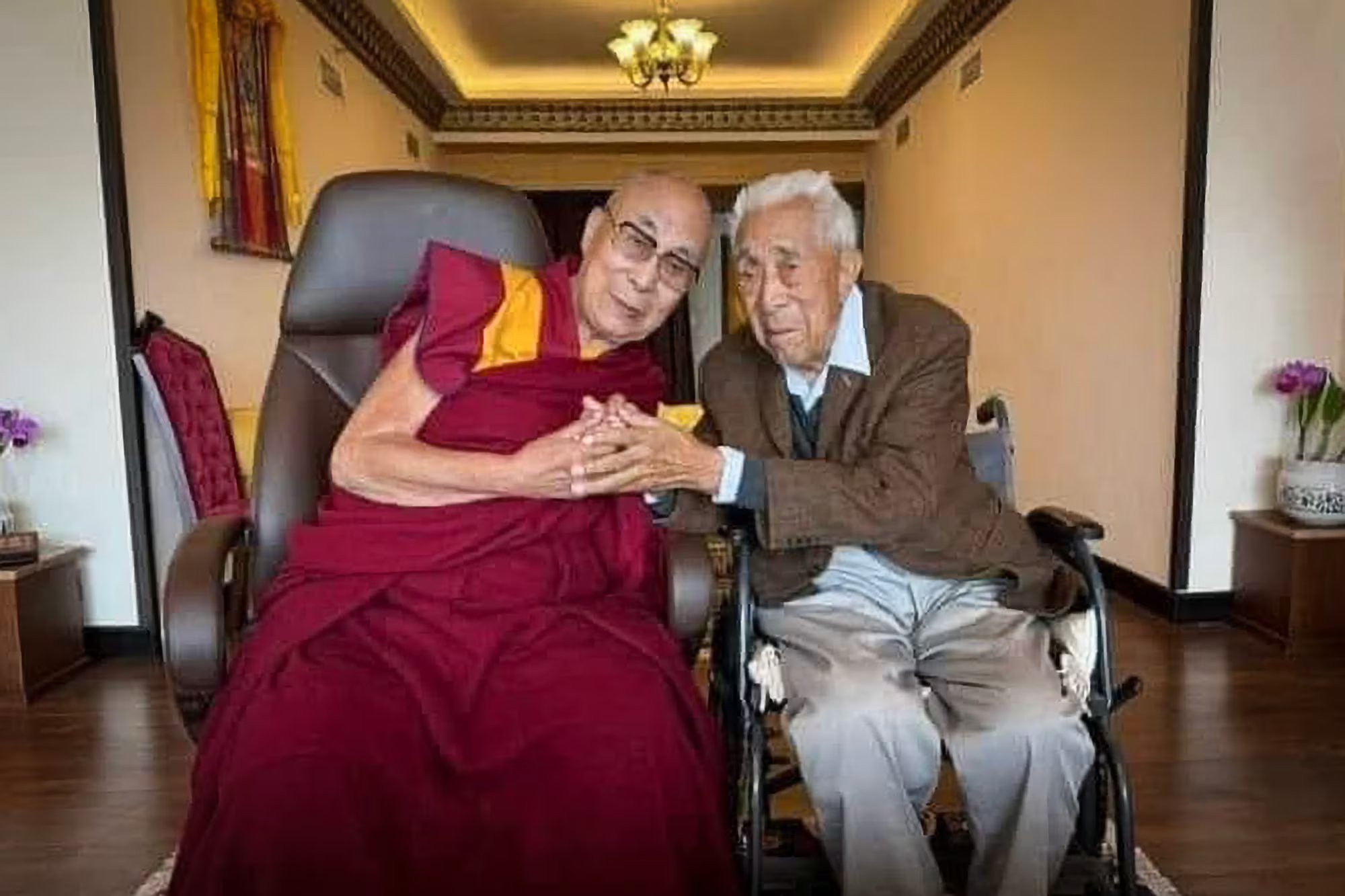Gyalo Thondup, an elder brother of the Dalai Lama who played a crucial role in the history of modern Tibetan, has died at his home in Kalimpong in northeast India aged 97.
One of six siblings to the Tibetan spiritual leader, he leaves behind a legacy built on a lifetime of advocating against Chinese rule in Tibet.
At different points in his life, Thondup made numerous – at times desperate – attempts to save Tibet’s traditional culture and self-governance, including seeking U.S. support for an armed resistance against the Chinese Communist regime, as well as through dialogue with Beijing, engagement with global leaders, and raising Tibet’s plight with the United Nations.
Groomed from a young age to serve as an advisor to his younger brother, Thondup’s singular role in advancing the Tibetan cause – often as the unofficial envoy of the Dalai Lama – as well as his early efforts to reform Tibet’s social and political systems have been met with a mix of reverence and controversy.
The meeting gave rise to a series of formal negotiations between the Dalai Lama’s official envoys and the Chinese leadership that continued until they ground to a halt in 2010.
Beyond his position as a brother to the Dalai Lama, he held high offices within the Tibetan government-in-exile, serving as Prime Minister in 1991 and Minister for Security from 1993 to 1996.
Yet an account of his life – The Noodle Maker of Kalimpong, co-written with Anne Thurston and published in 2015 – reflects deepest on his most controversial role, as the linchpin of a secret U.S.-backed campaign to arm and train Tibetan resistance fighters from 1956 to 1974.
‘Chief architect’ of the Tibetan resistance
When the People’s Liberation Army invaded Tibet in 1949, Thondup was in Taiwan. Unable to return home, he went to the U.S., where an older brother, Thubten Jigme Norbu, had gone ahead to earlier, and was there introduced to contacts at the CIA, the American intelligence agency.
But according to Thondup, it was not until 1956, when he had been living back in India and serving as a back channel source for what was going on in Tibet that the CIA approached him again with concrete plans to help train Tibetans to take up arms against the Chinese.
“The CIA was prepared to train some of the freedom fighters as radio operators and guerrilla warriors,” he writes in Noodle Maker. “[U.S. Admiral] John Hoskins wanted me to introduce him to some of the Tibetan fighters. I was happy to oblige.”
The resistance was not supported by the Dalai Lama, who as a figure of peace cannot back the taking up of arms on his behalf, but Thondup could. Beginning in 1957, he helped recruit fighters who would be sent to U.S. training camps in subsequent years. Some 200 fighters were eventually trained at Camp Hale, a secret location in Colorado.
Many of these fighters were later airdropped into Tibet to set up radio communications with Langley, which has later been credited for enabling the timely asylum granted to the Dalai Lama after his flight into exile from Tibet.
Though Thondup was one of several intermediaries between the Tibetan and U.S. governments, his status as the Dalai Lama’s brother meant that “in the eyes of the U.S. government, Gyalo was not just an intermediary; he was the chief architect of the Tibetan resistance,” according to Carole McGranahan, anthropologist and author several studies on Tibet’s resistance.
But in his later years, he seemed to express some regret for trusting the Americans, who ended the training program by 1974 amid warming relations between Beijing and Washington during the Nixon era.
His criticisms of the approach taken by the U.S. and other governments in turn created significant controversy around Thondup within the Tibetan community.
Nevertheless, Thondup, in what may have been his last media interview, told RFA in November 2024: “My hope is that Tibetans work together in unity and harmony and make Tibet’s culture, Tibet’s situation known to the whole world, and without losing heart continue to find ways to overcome difficulties, so everyone please work hard.”
Additional reporting by Passang Dhonden, Lobsang Gelek, and Passang Tsering; edited by Kalden Lodoe and Boer Deng
We are : Investigative Journalism Reportika
Investigative Reports
Daily Reports
Interviews
Surveys Reportika




